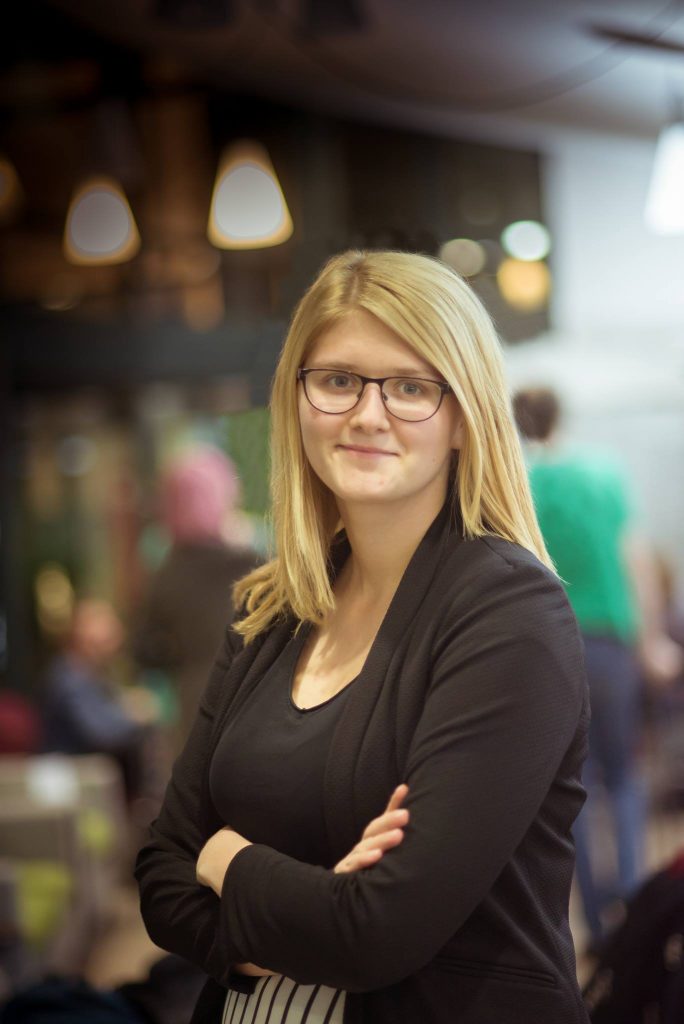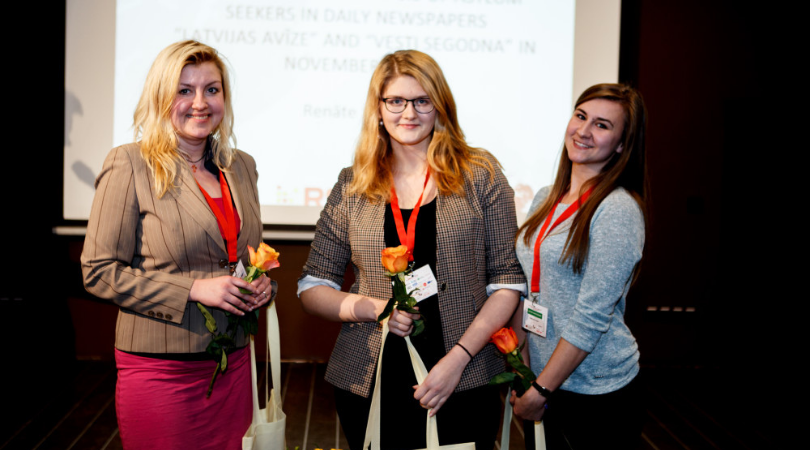Meet Renāte Šnore, former student of Rīga Stradiņš University Photgraphy program, former RSU Communications department employee and a member of International student conference 2016 Organising committee.
Last year, during RSU International student conference 2017, she won the honourable 1st place in Communication section with her “Representation Analysis of Asylum Seekers in Daily Newspapers “Latvijas Avīze” and “Vesti Segodnya” in November 2015″.
A little while ago we got in touch with Renāte to conduct an interview about her experience in the conference and to find out what was it like from her perspective, and this is what we’ve got!
What do you do?
Mainly I work in communications field. To be more precise, currently I am working with my photography project and analysing various circumstances and photo techniques which I could use in my project.
What do you do in your free time?
I try very hard to find balance between my free time and intellectual and physical activities. I read a lot, hang out with my friends and go to sports.
When did you start your studies in Photography and why?
I began my studies in 2014 in the “Photography” programme. After all these years it’s a little bit hard to tell why I chose exactly this program, but I think it got more to do with my belief and trust that the University is responsible for its reputation and every study program. “Photography” was the one that spoke to me, because ever since secondary school I realized that photography is something I really like. By choosing this course I wanted to get to know what photography really is and where in the photography media I could see myself.
What was your scientific research about?
In my scientific research I analysed the representation of Sirian refugees in two printed daily Latvian newspapers.
Have you shown any interest in academic research before that?
I can’t say that I’ve shown lots of interest towards academic research, but I find that educating myself in in some certain field, doing research in various scientific data bases is an exciting process for me.
Why did you decide to participate in RSU International student conference 2017?
I came to that decision thanks to various reasons and circumstances. One of them was that a year before participating in International student conference, I was a member of the organising committee and got to know how easy it was to create and submit the abstract of your scientific research. My desire to try and present my work in English was a challenge that motivated me as well.
What was the biggest motivation to participate?
The biggest motivation for me was to prove to myself that I can defend and present my scientific research in English in front of an audience and jury committee that I personally did not know.
How did your preparation for the conference go?
Well, I prepared my abstract in English, which, surprisingly, was slightly bothersome at one point because you have to narrow the very exact thought and being of your scientific research. When I received an email, stating that I have successfully applied, I began preparations for my presentation.
What was the most interesting for you in this conference?
Some of the most interesting things most definitely were the ability to enjoy and watch international student presentations in Communication section and their experience in their country. Various guest lectures from many different professors were also quite interesting.
How did you feel at the day of the conference?
Oh, I was very happy the entire day because International student conference is like a celebration for every student. That day I met many friends and acquaintances that I haven’t seen for a very long time, received new knowledge about the most unexpected topics and the feeling that you are a part of it all was just fantastic.
What is the most memorable thing from the conference?
The overfilled and packed hall of the University ten minutes before the conference. At that moment you get to see that science and scientific research is nothing far away from student life, quite the opposite – it’s a part of the study process and most definitely one of the most interesting ones.
How did you feel, receiving the first place in Communication section?
That was an extremely unexpected moment, even despite my hope that maybe I could win the first place. It was happiness and satisfaction that my scientific research was valued so highly.
Has the whole experience motivated you to do more research?
Definitely! However, now it is not so much about academic research, but my personal project research. Conducting research for me is to find information from various resources, find the critical parts of it and create my confidence in certain questions.
What have you learned from the whole experience?
I can view the conference from two perspectives – as an organising committee member and active participant. From the organisational point of view, I was surprised how much students can do and accomplish just with their energy and confidence. From the active participant point of view I was most intrigued how many students conduct scientific research. I am sure that if there was no such events like this, a lot of the work would just stay hidden and only for a grade at the end of a course.
Why, in your opinion, others should participate as well?
I think that everyone has to evaluate the benefits from participating in the conference, themselves, because they won’t be the same for everyone. If you are not confident enough to apply for this year’s conference, then you should apply as an activist or passive participant. To get to know the results of research conducted in the scientific field that interests you is something that definitely broadens your scope. To be an active participant is an incredible experience from those who are preparing to defend and present their bachelor’s or master’s thesis.
What would you like to say to those who are contemplating or already applied to ISC 2018?
For those who are still thinking about it – throw any kind of laziness aside, because registration to the conference is way easier than it seems, but for those who have already applied I advise to prepare for their presentation fully and once on “the stage” – present it with confidence and pride.

